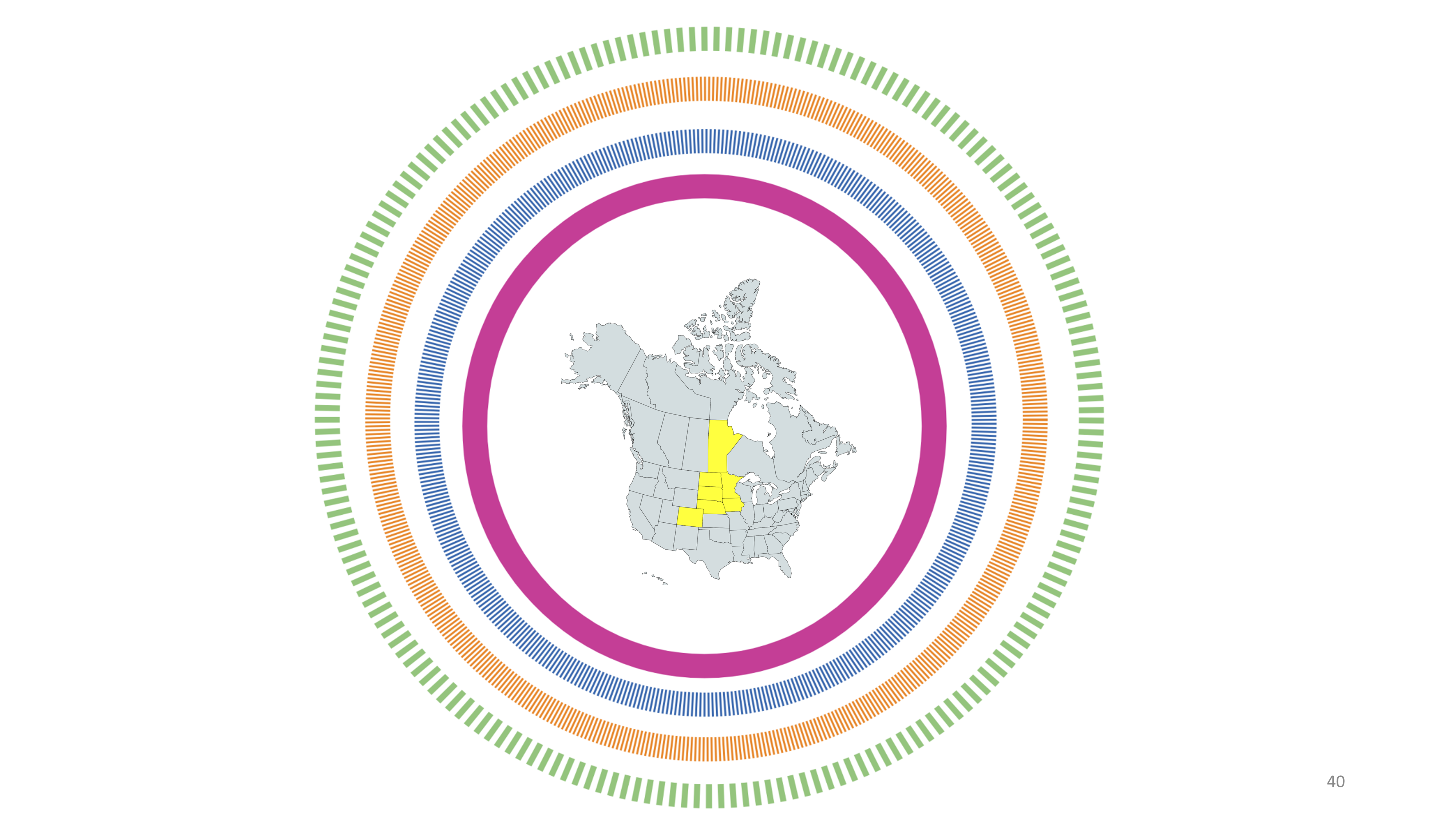Clavibacter nebraskensis (Cn) is a bacterial pathogen that causes Goss’s wilt and leaf blight (GWLB) disease in maize. Since its re-emergence in the mid-2000s, GWLB has spread to midwestern states in the corn belt as well as prairie regions of Canada and caused significant yield losses in maize production. The re-emergence of Cn has been generally attributed to no-tilling practices, maize-on-maize cropping, and environmental changes; it may possibly be due to changes in the pathogen population.
Cn is a gram-positive bacterial pathogen. Unlike gram-negative bacterial pathogens, Cn does not have many classical bacterial secretion systems and relies on cell-wall degrading enzymes and extracellular enzymes such as proteases. There are very few publicly available reference-quality genomes available, which limits understanding of the broad genomic structure of strains. Assistant Professor Devanshi Khokhani (Plant Pathology; MSI PI) is working on a project called “Pangenome of Goss's wilt and leaf blight pathogen Clavibacter nebraskensis” that will use an inventory of more than 250 strains of Cn, isolated from different geographical locations including mid-western states and provinces in Canada from 1969 to 2017. Based on the initial virulence assays performed by master’s student Molly Veregge and an undergraduate student, Cameron Donarski, 18 strains were selected, including avirulent, weakly virulent, moderately virulent, and highly virulent strains of Cn, for PacBio sequencing and performing comparative genomics. Whole-genome sequencing will allow identification of differences in genome structure, and prediction and testing of predictions of the genes involved in Cn pathogenicity. This will in turn allow targeting them for disease control. Professor Khokhani uses MSI resources for genomics studies of Cn; Dr. Thomas Kono of MSI’s Bioinformatics group is assisting in analyzing the sequencing data that will allow to compare the genomic structures of species with different virulence scores, collected from different locations and time periods.
This project recently received a Research Computing Seed Grant. RC Seed Grant funds are intended to promote, catalyze, accelerate, and advance U of M-based informatics research in areas related to the MnDRIVE initiative, so that U of M faculty and staff are well prepared to compete for longer term external funding opportunities. This Seed Grant falls under the Global Food research area of the MnDRIVE initiative.
As of September 2023, the RC Seed Grant programs have been revised into the DSI Seed Grant programs. DSI Seed Grants include many of the same goals as the old program, with a new emphasis on data science. Complete information about DSI Seed Grants, including application deadlines, can be found on the RC website.
